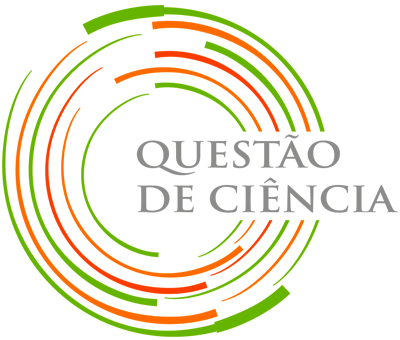
American biologist Douglas Futuyma is the author of "Evolutionary Biology," a textbook widely used in university courses. For decades, he has also been one of the foremost proponents of teaching Evolution – with no pity on Creationism – in US public school Science classes. Nevertheless, he was barely noticed by the media when he came to Brazil in May 2008 for a lecture to the students of the Biology Institute of Unicamp. Notably, it happened because the creation-evolution dispute in schools was "a very American issue," and did not represent "a problem in Brazil." Let's be honest here: Futuyma was not "controversial."
Less than 11 years later, things seem to be changing, and not for the better. Perhaps in response to current times, the most recent Catholic edition of the “Bible”, published by the the National Conference of Bishops of Brazil (CNBB), has a footnote linked to the opening verse of Genesis – "In the beginning, God created the heaven and the earth" – saying: "This beautiful text about the seven days of creation is not a science class."
Such a truism seems to escape the those in the high ranks of the Federal Government, "research centers" enlisted in important universities – such as São Paulo's Presbiterian Mackenzie University –, and the leadership of religious denominations. They are people who strive to confound religion with science and articulate to resume, in Brazil, the battles they lost, embarrassingly, in North America.
It is always good to remember the history of what happened there: the teaching in public schools on the "Science of Creation" – an attempt to present the literal account of the Book of Genesis with Adam, Eve, Noah's Ark, etc. , as scientifically defensible – was declared unconstitutional in the USA in 1987. Later, in 2005, the "Intelligent Design" theory, a camouflaged version of the same doctrine, followed the same path.
In both cases, judges, after hearing numerous testimony from experts, concluded that the inclusion of creationism in public education violated the constitutional clause that forbids the state to favor religious doctrines. Now, we wonder: how will such cases be handled in Brazil?
Although the Brazilian Constitution, Provision 19, prohibits governments, in all spheres, from "establishing religious services or churches, subsidizing them, embarrassing them or maintaining with them or their representatives dependency or alliance relations," we have worrying precedents: the Supreme Federal Court, for example, recently endorsed confessional religious teaching in public schools.
It is important to note that, globally, the creationism of an Evangelical Christianity matrix is very well funded. One of the "cause" organizations alone, Answers in Genesis, had a revenue of more than US$36 million in 2017. The Discovery Institute, a creationist group that maintains a partnership with the Universidade Presbiteriana Mackenzie in Brazil, had a revenue of about US$5 million in 2016.
Consequently, we are far from comfortable when we consider the possibility that some hungry-for-votes politician of local expression – a city councilor or state deputy, for example – decides to propose a law requiring that "all points of view" be presented in Science classes or Biology of his or her city or state. If this law is passed, the case proceeds to the highest courts.
At the federal level, the bill introduced in 2014 by Congressman Pastor Marco Feliciano (PL 8099/14), making the teaching of creationism compulsory throughout Brazil, was filed at the end of January 2019 but may return to the voting arena if the reelected Feliciano wishes to try again.
In fact, the Federal Council of Biology wrote a report against the bill. The Brazilian Society for the Advancement of Science (SBPC), the Brazilian Association for Research in Science Education, and the Brazilian Association for Teaching of Biology also showed their opposition through documents. The SBPC statement is pristine clear: "Evolution is Science, not belief," says one passage; "Creationism is a belief, not Science," says another.
Although it has an intuitive appeal – it sounds even democratic! –, the idea that it would make some sense to present "all points of view" of the question of biological evolution fails in at least three aspects.
The first is what the SBPC note points out: creationism is not science, so it does not belong in Science classes. The second is to state that, from the scientific point of view, there is more than one "side". There is not. Although some aspects of how the Theory of Evolution works are the subject of debate among scientists (e.g., the role of epigenetics), the framework of the evolutionary process and the importance of natural selection are not at stake. And even if they were, the alternative would be another scientific theory, not metaphysical speculation.
The third is that, since metaphysical or para-scientific explanations are accepted, there is not only "another side" (Christian Creationism), but innumerable: myths and legends about the origin of humanity abound in our world as well as more modern narratives involving aliens, supercomputers, or time travelers.
Even among Christian creationists, the nature of the narrative varies: there is Flat Earth Creationism (which considers literal some biblical expressions such as "waters above the firmament" and "four corners of the Earth"), the Geocentric (which regards as literal truth the Sun's stop in the sky described in the Book of Joshua), and so on. Should children also learn the flat earth "controversy"?
Several of the facts and evidence that underlie the Theory of Evolution are described in other texts of this journal. However, if the confusion of religious belief with natural science emanates not from a misunderstanding of Science but a sense of identity –the need to belong to a community with common values and believes – it is important to note that since the 1800s leaders of Protestantism, Catholicism, and Judaism have come out in favor of respecting Science, including evolution, as a domain of its own. Moreover, these groups also point to the dangers of a literal interpretation of the Bible.
In the mid-20th century, Henry Morris, founder of the Institute for Creation Research, wrote that "the concept of evolution ... is the great weapon of Satan." Nevertheless, well before that, in the 1880s, American Protestant theologian A.H. Strong affirmed that "we accept the principle of evolution" as a "method of divine intelligence." Moreover, in the last century, assemblies of Presbyterians and Lutherans, in addition to the Vatican, came to conclusions similar to that of Strong.
Finally, it is always good to remember the words of Augustine of Hippo, one of the first and most important intellectuals of Christianity, warning in times of the Roman Empire to the ridicule that exposes those who use the Bible to draw conclusions about the nature realities:
"It is a disgraceful and dangerous thing for an infidel to hear a Christian, presumably giving the meaning of Holy Scripture, talking nonsense on these topics; and we should take all means to prevent such an embarrassing situation, in which people show up vast ignorance in a Christian and laugh it to scorn. The shame is not so much that an ignorant individual is derided, but that people outside the household of the faith think our sacred writers held such opinions, and, to the great loss of those for whose salvation we toil, the writers of our Scripture are criticized and rejected as unlearned men."
This sentence appears, not by chance, in Augustine's commentary on the Book of Genesis.
